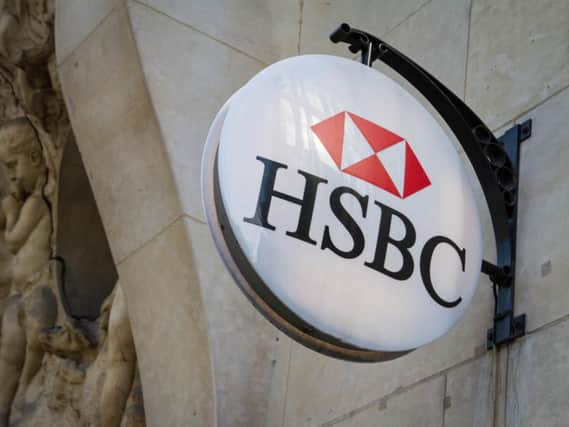Banking giant HSBC to wield the axe to 35,000 posts as profits tumble: reaction


Interim chief executive Noel Quinn said the number of people employed by the lender – Britain’s biggest bank – will go from 235,000 to some 200,000 over the next three years. It means that almost 15 per cent of the group’s workforce will be lost.
Finance chief Ewen Stevenson said there will be "meaningful" cuts in the UK where the bank employs around 40,000 people.
Advertisement
Hide AdAdvertisement
Hide AdThe move comes as HSBC, which has a string of branches and a call centre operation in Scotland, plans to slash more than $100 billion (£77bn) from its risk-weighted assets. Banks must hold capital against assets, such as loans, based on their riskiness, so that they can take the blow if the asset is lost.
The news came as the banking giant reported a 33 per cent fall in pre-tax profit for 2019 to $13.35bn, below analysts’ expectations. It said the drop was due to “a goodwill impairment” of $7.3bn.
“This arose from an update to long-term economic growth assumptions, which impacted a number of our businesses,” HSBC’s annual results statement said.
The group warned that the outbreak of coronavirus had caused “significant disruption” for its business, especially in mainland China and Hong Kong.
It is headquartered in London but almost half its revenue and nearly 90 per cent of profit came from Asia in 2018, with much of that coming from Hong Kong.
HSBC said coronavirus might push down lending and transactions in the region, which could reduce its revenue. It lowered its outlook for the overall Asian economy in 2020, mainly in the first quarter of the year.
Resilient
Quinn said: “The group’s 2019 performance was resilient, however parts of our business are not delivering acceptable returns.”
The bank said it was still looking for a full-time boss to replace Quinn, and hopes to do so within the next six to 12 months.
Advertisement
Hide AdAdvertisement
Hide AdThe HSBC statement also addressed Brexit, saying that: “Now that the UK has officially left the EU, negotiations can begin on their future relationship. This has provided some certainty, but no trade negotiation is ever straightforward.
“It is essential that the eventual agreement protects and fosters the many benefits that financial services provide to both the UK and the EU.”
It added that as well as remaining close to Europe, the UK must also strengthen its links with other key partners, including the US, China and south-east Asia.
Quinn said he and his team had begun implementing a plan to “increase returns for investors, create the capacity for future investment, and build a platform for sustainable growth”.
Adam Vetttese, an analyst at multi-asset investment platform eToro, said: “HSBC’s annual results were expected to make for uncomfortable reading, but few – if anybody - expected profits to be down more than 30 per cent.
“The bank has taken drastic measures, including plans to shed £77bn of assets, 35,000 jobs and slashing the size of its investment bank, as it bids to return to growth.
“But there is no guarantee that these measures will make HSBC, which has trailed its rivals for some time, the competitive bank it is craving to become in the short-term at least, particularly with the current weakness in Asia, its key market.”
Questions
Richard Hunter, head of markets at Interactive Investor, said: "For the moment there remain more questions than answers as HSBC looks to overhaul its business in radical fashion.
Advertisement
Hide AdAdvertisement
Hide Ad"Quite apart from the economic challenges, there remains space at the top for a replacement chief executive, the search for whom is an additional distraction. The bank seems determined to target its unacceptably performing units but this will take time, courage and capital.
"Investors have largely lost patience given the scale of this challenge and a share price decline of 11 per cent over the last year compares to a 3 per cent hike for the wider FTSE-100.
"Another effect of HSBC’s financial misfortunes has been the deterioration of the market consensus which remains rooted at a sell, reflecting notions of better value elsewhere in the sector."